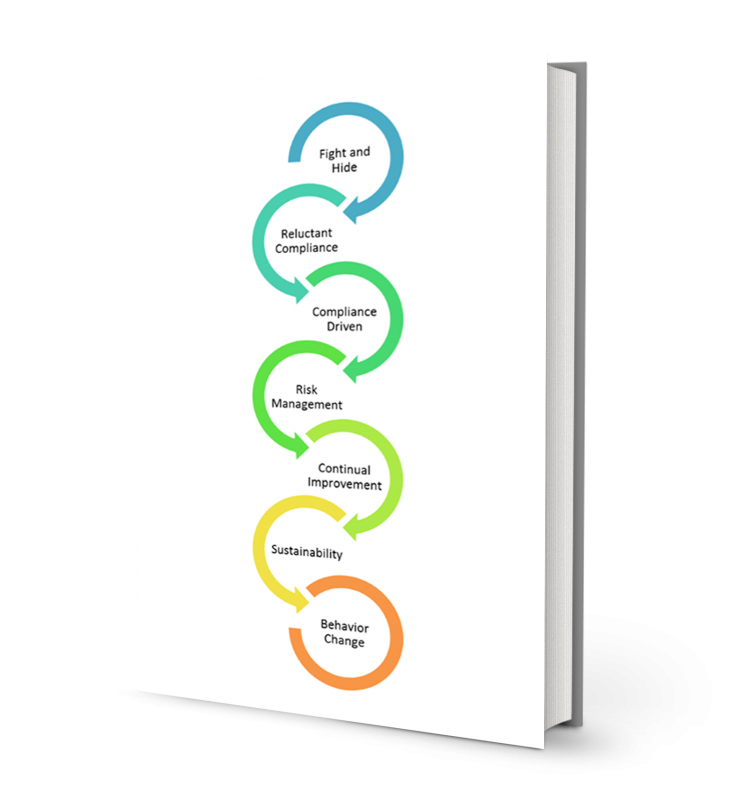FUNDING OF UNIVERSITY EDUCATION: A PANACEA FOR EXCELLENCE IN TEACHING AND LEARNING IN PERIOD OF ECONOMIC UNCERTAINTY IN ANAMBRA STATE
CHIME, GLADYS OZULUONYE
+2348033500483 go.chime@unizik.edu.ng DEPARTMENT OF EDUCATIONAL MANAGEMENT AND POLICY
UGWU, IFEANYICHUKWU
+2348036052742 if.ugwu@unizik.edu.ng DEPARTMENT OF EDUCATIONAL MANAGEMENT AND POLICY
This research focused on funding of university education: a panacea for excellence in teaching and learning in period of economic uncertainty in Awka State. The study was guided by three research questions and three research hypotheses tested at 0.05 level of significance. It adopted the descriptive survey design. The population of the study comprised 1041 senior lecturers of the Nnamdi Azikiwe University, Awka. Through simple random sampling, a total of 300 senior lecturers were selected for the study. Instrument for data collection was a questionnaire titled ‘funding of university education as panacea for excellence in teaching and learning’. The questionnaire was validated by three education experts. In order to ascertain the reliability of the instrument, it was tested on 25 university lecturers from Chukwuemeka Odumegwu Ojukwu University, Anambra who were not part of the selected sample. Test-retest technique was adopted for this process after which, scores were collated and computed using Cronbach Alpha which yielded coefficients of 0.83, 0.79 and 0.85 index respectively. Mean and standard deviation was used for data analysis while t-test was used to test the hypotheses. Findings show among others that university education in Nigeria is funded through education tax funds, government funding, tuition and fees, grants, consultancy and research activities as well as through community participation.The study recommends among others that stakeholders in university education should make funds readily available to universities in order to maintain the progress of innovation in human and material resources
Abdullah, M.B.,Haruna, M.& Jali, M.R.M. (2017).Government funding in education
industry.InternationalJournal of Academic Research in Business and Social Sciences.7(6),769772.Https:www.resarchgate.net/publication/325122009/doi.dx,doi.org/10.6007/IJRBSS/v7-i6/3036
Ahmed, S (2015). Public and private higher education financing in Nigeria.European Scientific
Journal, 11(7), 92-109.
Akpoyovwaire, S.M. (2014). Gender participation in university education in Nigeria: Closing the
gap. International Letters of Social and Humanistic Sciences,34, 53-62
California Coast University (2023).Educationalfinance. http://www.calcoast.edu/edu-630-
educational-finance.html.
Cislaghi, B. & Heise, L. (2020). Gender norms and social norms: differences, similarities and
why they matter in prevention science. Sociology of Health, 42(2), 407-422. doi: 10.1111/1467-9566.13008.
Colak, M. S., Guney, I. E. & Hacihasanoglu, Y. S. (2020).The relationship between economic
uncertainty and firms’ balance sheet strength.Retrieved from https://www.interchopen.com/chapters/71646. accessed 29h Oct, 2023Federal Republic of Nigeria (FRN,2013). Nationalpolicyoneducation (6th Edition). Lagos: NERDC.
Femade, O.A., Omiyale, G.I. & Adebola, Y.A. (2015). Towards improved funding of tertiary
institution in Nigeria. Asia journal of Humanities and Social sciences (AJHSS) 3(2) 83-90.
Guthrie, J.W. & Schuermann (2017).Educationfinance. Retrieved from
https://www.oxfordbibiographies,com/-.xml. Accessed 10/01/2024
Hevel, M. S., Martin, G. L., & Pascarella, E. T. (2014). Do fraternities and sororities still
enhance socially responsible leadership? Evidence from the fourth year of college. Journal of Student Affairs Research and Practice, 51(3), 233–245. doi:10.1515/jsarp-2014-0025
Mahabub, M. G. (2014). The challenges of access to university education in Nigeria.
International Conference on Economics, Education and Humanities (ICEEH'14) Dec. 10-11, Bali (Indonesia).
Mbah, Chidozie O., Nnadi, K. J., Nwachukwu, C. C. & Onoh, C.E. (2017). Alternative
funding strategies for repositioning technology education for sustainable skill development and economic development in South-East States of Nigeria. NAU Journal of Technology & Vocational Education, 2(1), 169-181.
Nisar, M.A. (2015). Higher education governance and performance based funding as an ecology
of game. Higher Education, 69(2), 289-302
Ofor-Douglas, S.(2023). University education and politics of funding in Nigeria.East
African Journal of Arts and Social Sciences, 6(1), 389-403. https://doi.org/10.37284/eajass.6.1.1270
Oyeola,O.T., Igwe, N.C,.Ajiboshin, I.O., & Peluola, S.B. (2014). Entrepreneurship education:
solution to youth unemployment in Nigeria. JournalofPoverty,InvestmentandDevelopment, 5,149-157.
Pettinger, T. (2016). Economic uncertainty. Retrieved September, 23 from
https://www.economicshelp.org/blog/4941/economics/economic-uncertainty/
Rowell, E.U & Money, O.V. (2018).Financing education in Nigeria: Implications and options
fornational development.World Journal of Educational Research,5(3),227-239.
industry.InternationalJournal of Academic Research in Business and Social Sciences.7(6),769772.Https:www.resarchgate.net/publication/325122009/doi.dx,doi.org/10.6007/IJRBSS/v7-i6/3036
Ahmed, S (2015). Public and private higher education financing in Nigeria.European Scientific
Journal, 11(7), 92-109.
Akpoyovwaire, S.M. (2014). Gender participation in university education in Nigeria: Closing the
gap. International Letters of Social and Humanistic Sciences,34, 53-62
California Coast University (2023).Educationalfinance. http://www.calcoast.edu/edu-630-
educational-finance.html.
Cislaghi, B. & Heise, L. (2020). Gender norms and social norms: differences, similarities and
why they matter in prevention science. Sociology of Health, 42(2), 407-422. doi: 10.1111/1467-9566.13008.
Colak, M. S., Guney, I. E. & Hacihasanoglu, Y. S. (2020).The relationship between economic
uncertainty and firms’ balance sheet strength.Retrieved from https://www.interchopen.com/chapters/71646. accessed 29h Oct, 2023Federal Republic of Nigeria (FRN,2013). Nationalpolicyoneducation (6th Edition). Lagos: NERDC.
Femade, O.A., Omiyale, G.I. & Adebola, Y.A. (2015). Towards improved funding of tertiary
institution in Nigeria. Asia journal of Humanities and Social sciences (AJHSS) 3(2) 83-90.
Guthrie, J.W. & Schuermann (2017).Educationfinance. Retrieved from
https://www.oxfordbibiographies,com/-.xml. Accessed 10/01/2024
Hevel, M. S., Martin, G. L., & Pascarella, E. T. (2014). Do fraternities and sororities still
enhance socially responsible leadership? Evidence from the fourth year of college. Journal of Student Affairs Research and Practice, 51(3), 233–245. doi:10.1515/jsarp-2014-0025
Mahabub, M. G. (2014). The challenges of access to university education in Nigeria.
International Conference on Economics, Education and Humanities (ICEEH'14) Dec. 10-11, Bali (Indonesia).
Mbah, Chidozie O., Nnadi, K. J., Nwachukwu, C. C. & Onoh, C.E. (2017). Alternative
funding strategies for repositioning technology education for sustainable skill development and economic development in South-East States of Nigeria. NAU Journal of Technology & Vocational Education, 2(1), 169-181.
Nisar, M.A. (2015). Higher education governance and performance based funding as an ecology
of game. Higher Education, 69(2), 289-302
Ofor-Douglas, S.(2023). University education and politics of funding in Nigeria.East
African Journal of Arts and Social Sciences, 6(1), 389-403. https://doi.org/10.37284/eajass.6.1.1270
Oyeola,O.T., Igwe, N.C,.Ajiboshin, I.O., & Peluola, S.B. (2014). Entrepreneurship education:
solution to youth unemployment in Nigeria. JournalofPoverty,InvestmentandDevelopment, 5,149-157.
Pettinger, T. (2016). Economic uncertainty. Retrieved September, 23 from
https://www.economicshelp.org/blog/4941/economics/economic-uncertainty/
Rowell, E.U & Money, O.V. (2018).Financing education in Nigeria: Implications and options
fornational development.World Journal of Educational Research,5(3),227-239.

